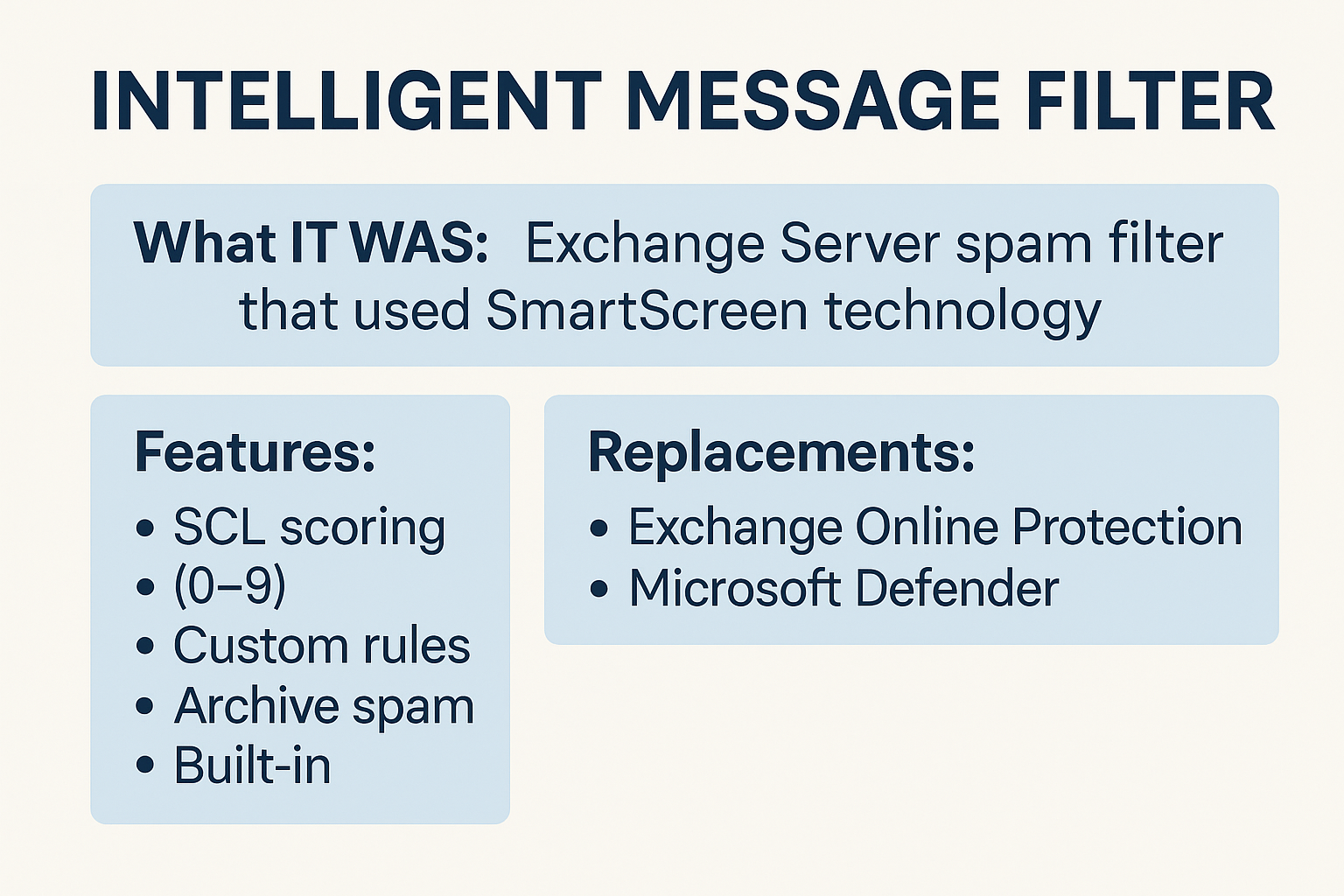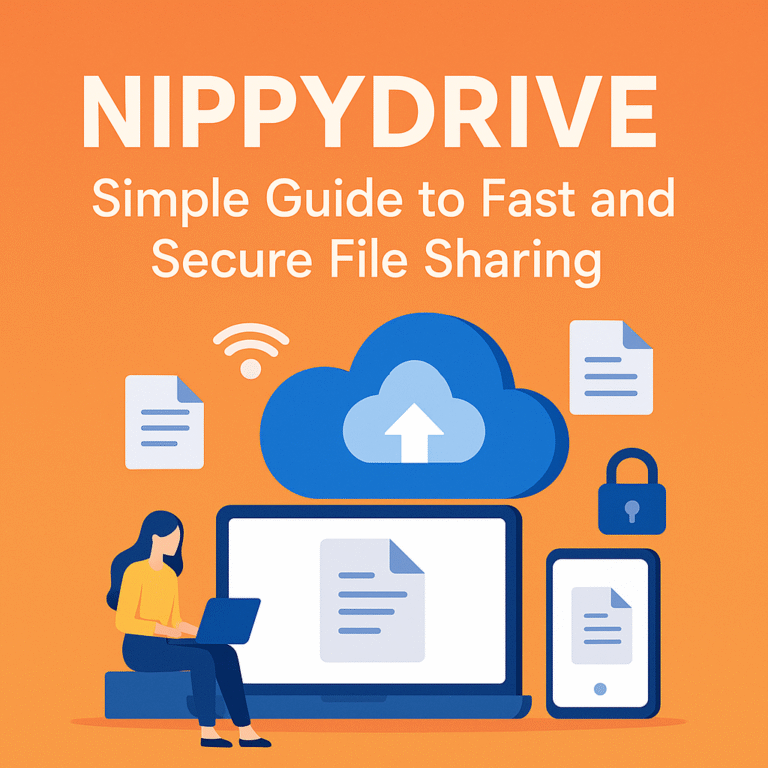Intelligent Message Filter : Simple Guide, Features, and Replacements
Email is a fast and easy way to communicate, but it also brings a big problem spam messages. Spam wastes time, fills inboxes, and can even carry viruses or phishing attacks. To fight this, Microsoft created the Intelligent Message Filter for Exchange Server 2003. It was one of the first tools to block junk mail directly inside a mail server. Today, IMF is no longer used, but it was very important in the history of email security.
This guide explains in simple words what IMF was, how it worked, its main features, problems, and what has replaced it today 5StarsStocks
What is Intelligent Message Filter?
The Intelligent Message Filter was Microsoft’s spam filter for Exchange Server. It looked at each incoming email and guessed whether it was real mail or spam.
It used a system called SmartScreen, which learned from millions of real emails. With this, it could identify common spam patterns. IMF then gave every message a Spam Confidence Level score.
0 not spam
9 definitely spam
Admins could decide what to do with each message depending on its score.
How IMF Worked
Here is a simple step-by-step of how IMF processed emails:
Email received by the server.
IMF checks content subject, body, and format.
SCL score 0–9 assigned.
Action taken based on the score and admin settings.
Actions in IMF
Admins could set rules to decide what happens when an email reached a certain SCL score.
| SCL Score | Meaning | Action Example |
|---|---|---|
| 0–3 | Low chance of spam | Delivered to inbox |
| 4–6 | Medium chance of spam | Sent to Junk folder |
| 7–9 | High chance of spam | Deleted, rejected, or archived |
This helped reduce spam but sometimes blocked real emails too.
Features of IMF
Here are the main things IMF could do:
Used SmartScreen technology to detect spam.
Gave each message a score
Allowed custom rules for handling emails.
Could archive spam for later review.
Was built into Exchange Server, no extra software needed.
Got regular spam updates from Microsoft
Benefits of IMF
When it was new, IMF helped many organizations by:
Cutting down large amounts of spam.
Reducing time wasted by employees.
Giving admins control with thresholds.
Working directly with Exchange Server.
Offering a free built in solution.
Problems with IMF
Over time, IMF showed several weaknesses:
Needed updates without new definitions, it missed spam.
Not supported in Exchange clusters.
Hard to manage archives required extra tools.
False positives sometimes blocked safe emails.
Outdated could not fight modern phishing or malware.
Why Microsoft Stopped IMF
IMF relied on SmartScreen updates, but Microsoft stopped sending these updates. This made IMF weaker and unable to keep up with new spam tricks.
Instead, Microsoft moved to cloud-based filters, which update automatically and use advanced machine learning.
IMF vs Modern Solutions
Here is a quick comparison between IMF and today’s spam filters:
| Feature | IMF | Modern Cloud Filters |
|---|---|---|
| Technology | SmartScreen, local updates | AI + cloud intelligence |
| Updates | Stopped after 2016 | Real-time global updates |
| Deployment | On-premises Exchange | Cloud-based |
| Accuracy | Good at first, then weak | Very high, improves daily |
| Handling | SCL scoring | Multi layer protection |
| Support | No longer supported | Fully supported |
Modern Replacements
IMF is now replaced by:
Exchange Online Protection
Blocks spam, malware, and phishing.
Built into Microsoft 365.
Microsoft Defender for Office 365
Gives advanced protection.
Defends against targeted phishing, ransomware, and new threats.
These tools are stronger because they use AI and update instantly in the cloud.
Why IMF Still Matters
Even though IMF is retired, it was important because:
It introduced the SCL score
It showed how spam filters can be part of mail servers.
It helped prepare the way for modern AI powered filters.
FAQs
What was IMF?
IMF was Microsoft’s spam filter for Exchange Server 2003. It used SmartScreen and SCL scoring.
How did IMF decide what was spam?
It gave each message a score Low scores were safe, high scores were spam.
Is IMF still working today?
No. Microsoft stopped updates, so it is outdated and weak.
What replaced IMF?
IMF was replaced by Exchange Online Protection and Microsoft Defender for Office 365.
Can IMF be used in old servers?
Yes, but it is not safe or effective anymore.
Why is IMF important in history?
Because it was one of the first built-in spam filters and introduced ideas still used today.
Conclusion
The Intelligent Message Filter was once a helpful tool to block spam in Microsoft Exchange. It used SmartScreen and SCL scores to reduce junk mail. But over time, it became outdated, and Microsoft moved to cloud-based protection with real-time updates.
Today, tools like Exchange Online Protection and Microsoft Defender for Office 365 keep email safe from spam, phishing, and malware.







